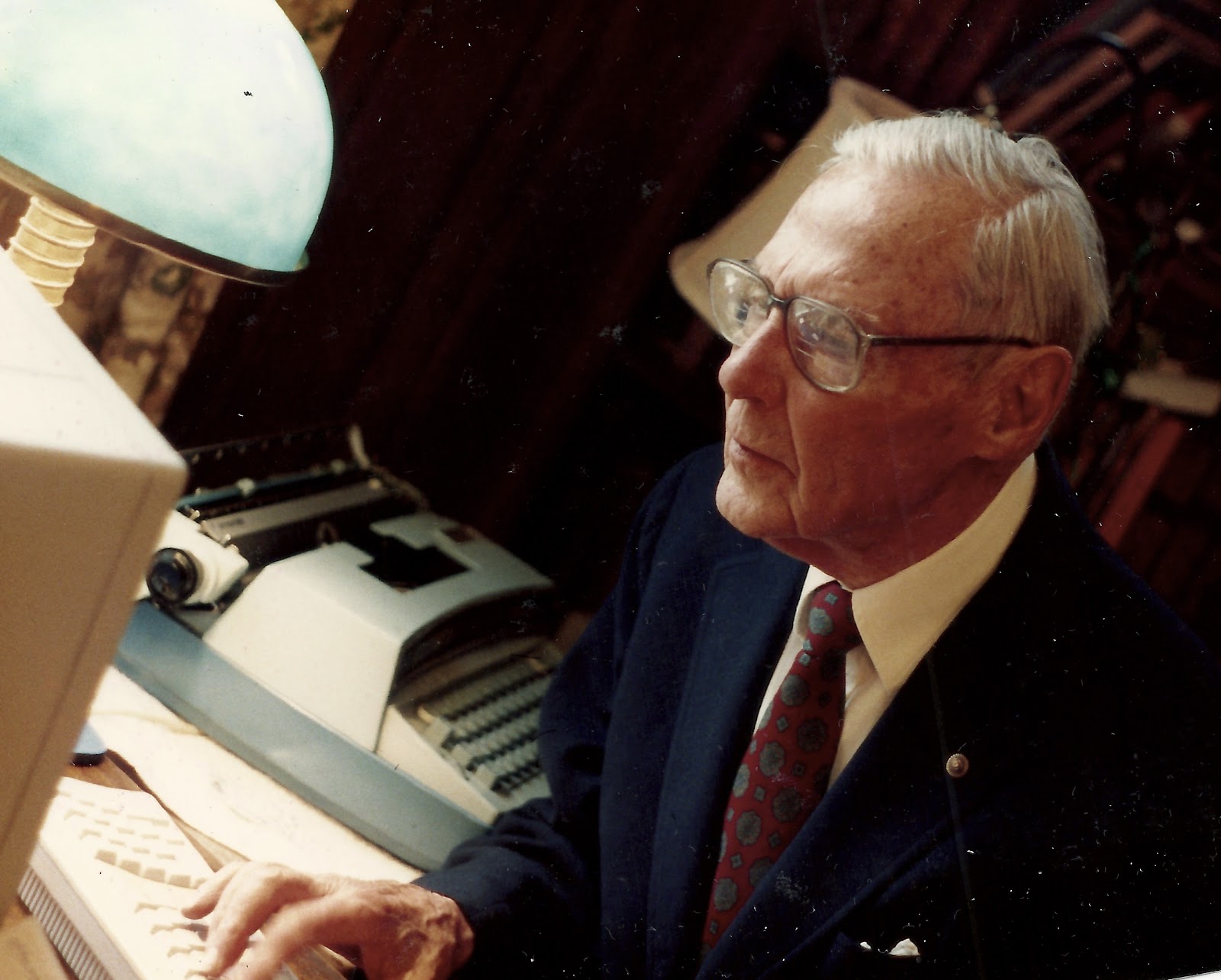Wish I didn’t know now what I didn’t know then.
—Bob Seeger
I remember going into my grandfather’s dim bedroom one afternoon late in his long life. He was sitting up in bed, in faded blue pajamas, his hair combed neatly, his catheter bag mostly hidden by a fold of sheet on the side of the bed. It was the walnut bed he had made for his wedding when he was 21. His wife of 67 years had been gone for ten years by then, even longer if you take into account the years she didn’t remember who he was, who anyone was, leaving him alone in their bed. His head was turned toward the window where sparrows were popping on and off a bird feeder that had a squirrel deterrent collar around it that the squirrels used to hang down and eat their fill. He looked over at me with a wistful expression, and I asked what he was up to, as if I had just been in the kitchen cleaning up and was checking on him, as if I were there all the time instead of once a week, maybe twice, to visit in the afternoons, sometimes with my children, his great-grandchildren.
“I’m just lying here thinking about every mean thing I ever did to my children,” he said.
His son, my uncle, tells the story of coming in one night late and drunk when he was a teenager and winding up on his back from a quick punch and looking down the hallway to see his father’s bathrobe flapping in retreat. My mother was anxious, and I wonder if she ever felt she fully lived up to her parent’s hopes for her, but she never let on that they said anything to make her feel she wasn’t good enough. My grandfather was a preacher’s son, a deacon in the church himself, a college president, a good man who followed the commandments of his faith to feed the poor and visit the sick. I’m pretty sure he didn’t do many mean things to his children.
And yet, now, as I move into the last decades of my own life, hoping to live to be 98, as he did, my children all grown and off on their own, I find myself occasionally wandering down my grandfather’s melancholy path. It’s easier for me to have those regrets, I think. I have done mean things to my children, no doubt more than he did. Sometimes I would get too mad when I scolded them; sometimes I even spanked them. I divorced the mother of my first three, and I understand now that although I had convinced myself they were old enough to understand, I was wrong.
It’s not the direct, obvious offenses that bother me at three in the morning, though. It’s something much vaguer, but perhaps because of its uncertainty even more troubling. Call it opportunity cost. We all know what that is: it’s when you let time go by without taking advantage of a fleeting opportunity, or when you put time and money into something only to realize later that they would have been better spent on something else.
We think of opportunity cost as our own responsibility, or fault, something we did or didn’t do, a choice we made. But as a parent, I, and maybe others like my grandfather and me, blame ourselves for the opportunities our children missed. If I had just insisted that she stick with piano lessons… If I had taught him how to manage money better… If I had convinced him he should take chances in love…
Some parents live through their children. This is different than that, though. More painful, in a way. I’ve learned (the hard way) that my children don’t want me to tell them what to do. Mostly I resist. This isn’t about seeing them about to make a mistake and rushing in with a warning of good advice. I do that less and less. No, this is something more systemic, reaching back deeply into their childhoods, when they were mine to mold, or at least I thought they were, and I worry I didn’t do a good job shaping their raw clay. And because of that, because of my failures when they were young, their missed opportunities as adults are my fault. This is a particularly devastating revelation when it comes long past the time I can do anything about it. I have taught them to be independent, to make their own decisions, but may have left them ill-equipped for the task.
I know, I know, I’m beating myself up way too much. Maybe. I wasn’t an abusive or neglectful dad, I did most of the things good dads are supposed to do. It’s up to them now. And each of them is doing a great job stewarding their life. They are all happy and successful.
And yet late at night the dread creeps in that I didn’t do enough. Perhaps the real question is whether, no matter how much I did, I could ever feel it was enough. There is some piece missing in me, I fear, not them. Maybe it is the same piece my grandfather felt was missing in him. Something that denies contentment when looking back over the landscape of fatherhood. Maybe lots of dads feel this way, not just my grandfather and me. I hope not.
